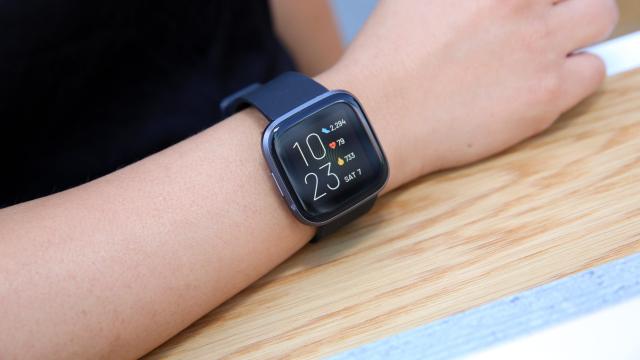New research out today is the latest to indicate that people who catch covid-19 can experience lingering effects after recovering. The study, based on FitBit data collected from hundreds of users, found that it took around two to three months for the elevated heart rates of covid-19 survivors to return to normal following their initial diagnosis, and it took even longer for some people.
Scientists have been hopeful about the potential for health monitoring wearables to become a warning system for various medical conditions, including infectious diseases like covid-19. As part of this research, a team of scientists from the Scripps Research Translational Institute in California embarked on a project in March 2020 to test whether data collected from wearables (specifically the FitBit) could predict the emergence of covid-19, dubbed the DETECT study. So far, the early data from the DETECT study and others does suggest that wearables, possibly in conjunction with self-reporting of symptoms, can be accurate at identifying covid-19.
This new study, published Wednesday in JAMA Network Open, is based on data from the DETECT study, and it focuses on what happened to these users after their covid-19 diagnosis. The researchers looked at data from 875 people in the study who reported symptoms of an acute respiratory illness and were tested for covid-19; out of these, 234 tested positive for the coronavirus. They also kept track of people’s acute symptoms.
Covid-19 patients tended to experience a short drop in their resting heart rate, relative to their baseline, after their symptoms started, followed by a sustained elevated heart rate. They also performed less physical activity (measured by their step count) and slept less than they did before their diagnosis. Compared to people with other respiratory infections, the team found, those with confirmed covid-19 took longer to return to their baseline resting heart rate and other markers of health.
On average, it took 79 days for their heart rate to go back down, 32 days for their level of physical activity to return, and 24 days for their sleep quantity to climb back up. But a small percentage (13.7%) of sufferers continued to experience an elevated resting heart rate for more than 133 days, or about 4.5 months.
The authors say theirs is the first study to study long-term wearable data. And the “prolonged physiological impact” they found in their volunteers with confirmed covid-19 may offer important clues for the origins of long covid. One leading theory for the many disparate symptoms linked to long covid argues that they’re caused by dysautonomia, or autonomic dysfunction — a breakdown in the parts of the nervous system that regulate involuntary bodily functions, including our heart rate. Yet another theory argues that chronic inflammation is at the root of many symptoms. Both of these systemic problems, either alone or combined, could also affect heart function, the authors point out.
“Lots of people who get covid end up getting autonomic dysfunction and a kind of ongoing inflammation, and this may adversely affect their body’s ability to regulate their pulse,” lead author Jennifer Radin, an epidemiologist with Scripps, told the New York Times.
No single study’s findings are conclusive. But unlike some other attempts to study long covid, this one was able to look at people confirmed to have covid-19 and to compare them to people who were sick for other reasons, important for ruling out effects that could be linked to respiratory infections in general, rather than covid-19 specifically.
One limitation of the study, which the authors acknowledge, is that they only monitored people’s symptoms in the beginning. So it’s not possible to know whether these elevated heart rates were linked to noticeable symptoms like fatigue commonly reported by long haulers, or how often and for how long these symptoms were happening. But the team did find evidence that people who had worse symptoms during their acute covid-19 illness were more likely to report elevated heart rates for longer periods of time; those with larger disturbances to their heart rate early on were also more likely to keep having an elevated heart rate for longer.
The authors plan to keep studying wearable data from patients after their initial bout of covid-19, which will include more extensive tracking of long-term health problems they may be having.
